No. 91 (615) October 2025
WOMEN, WATER AND COOPERATION: CENTRAL ASIAN REPRESENTATIVES TOOK PART IN THE STUDY-TOUR TO A TRANSBOUNDARY RIVER BASIN
As part of the OSCE Initiative “Women, Water Management and Conflict Prevention – Phase III”, a study tour to a transboundary river basin was organized on 29 September – 4 October 2025. The study tour brought together members of the “Women in Water Management in Central Asia and Afghanistan” Network, representatives of the Youth Initiative “Drops of the Future” and the South Caucasus branch of the “Women in Water Diplomacy” Network. Usmanova Oygul, member of the “Women in Water Management in Central Asia and Afghanistan” Network, took part in the study tour on behalf of SIC ICWC.
The aim of the tour was to strengthen the capacity of women experts in the field of water diplomacy, as well as to exchange knowledge and best practices in transboundary water resources management. The program included visits to international organizations in Geneva, Switzerland and Koblenz, Germany.
Geneva (29 September – 1 October)
UNECE Convention on the Protection and Use of Transboundary Watercourses and International Lakes (Water Convention) – the legal framework of international water cooperation and participation in a negotiation simulation;
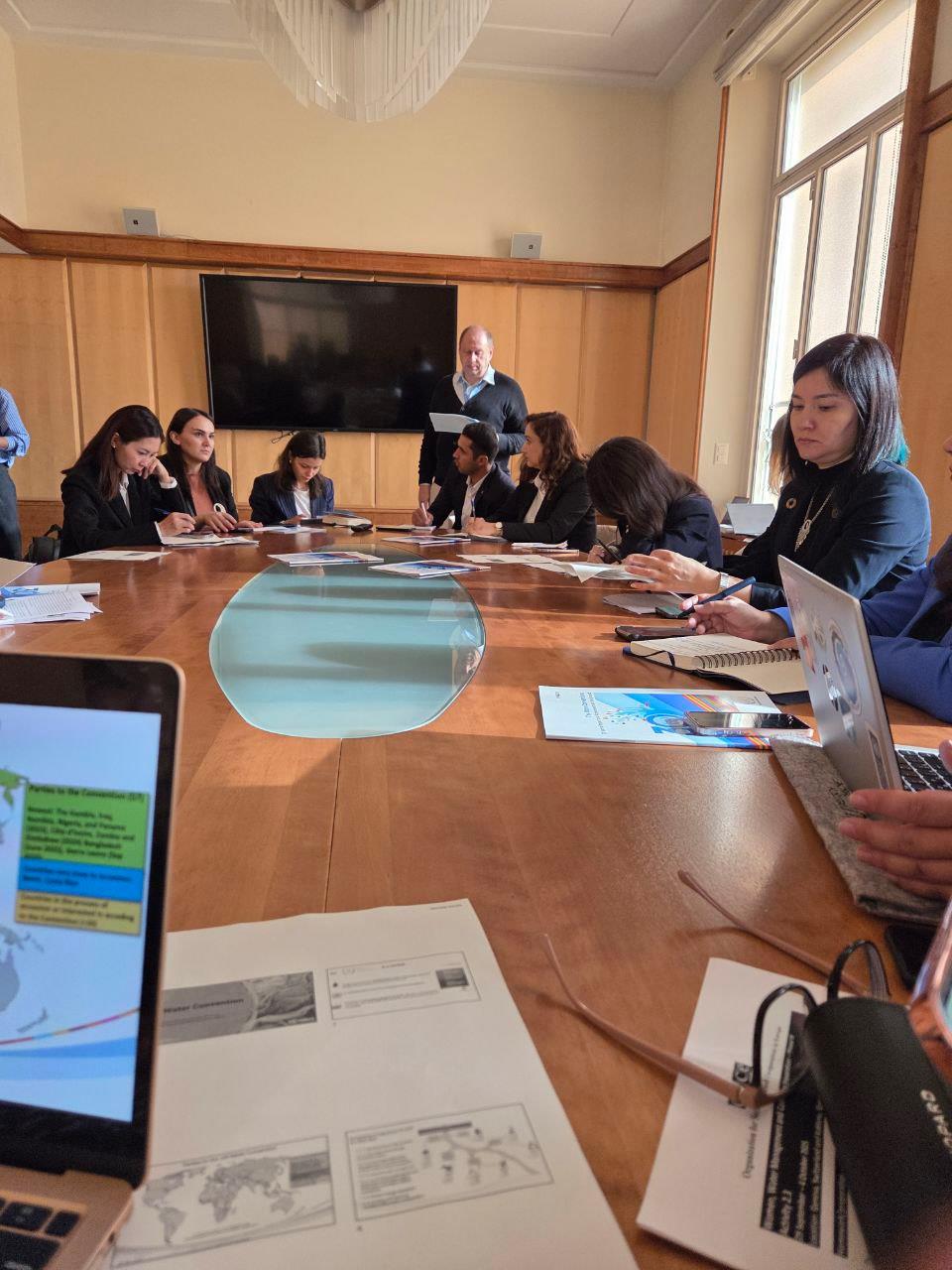
World Meteorological Organization (WMO) – discussing the role of hydrometeorological data in water diplomacy;
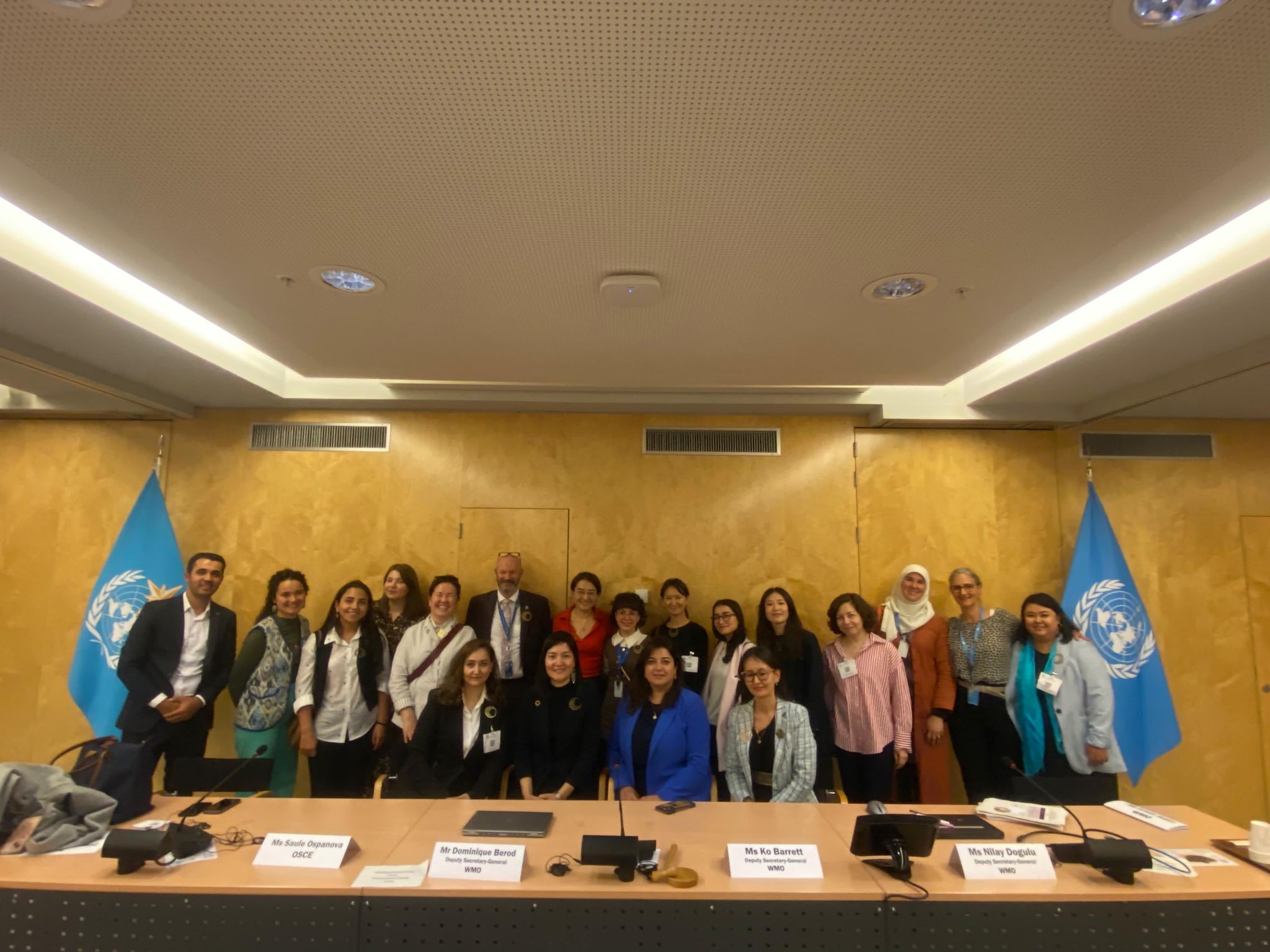
Geneva Water Hub – capacity-building program, in particular, a short course on legal protection of water in armed conflicts and a newly developed training course on water digitalization;
42nd UN-Water Meeting which discussed preparation to the 2026 UN Water Conference.
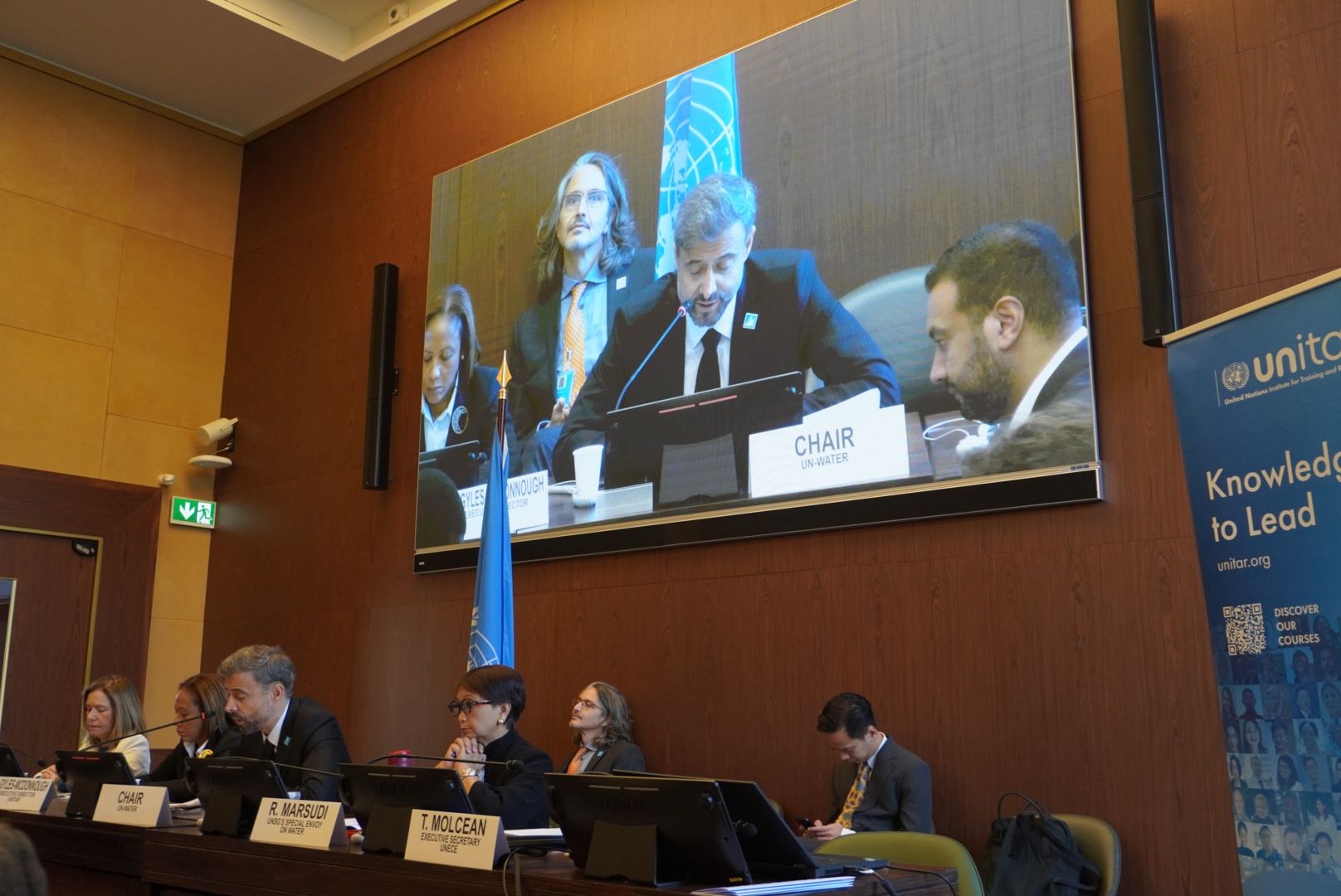
Koblenz (1 – 3 October)
International Commission for the Protection of the Rhine (ICPR), where participants got to know the management framework of the Rhine River Basin and the mechanisms of interstate cooperation. The Commission of 9 states was established in 1950 since the Netherland put forward an initiative to improve river water quality in 1948. In the 70-s, the countries declared that the Rhine water quality was improved. It is interesting, that besides the Coordination Committee, the Commission acts through its working groups assigned every 6 years and each having their own mandate. Disputes are resolved at expert level, otherwise are dealt at the next higher level;
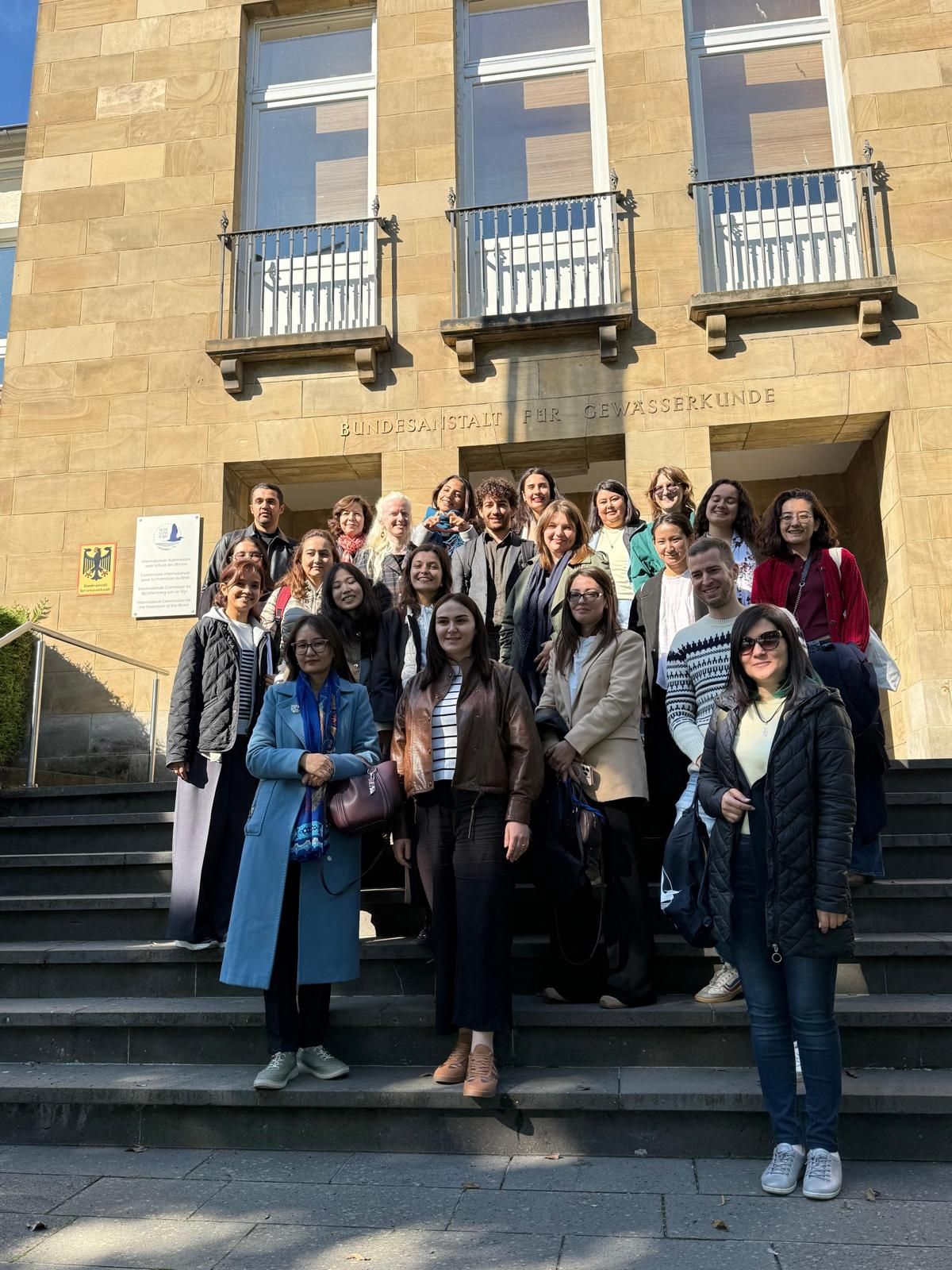
Federal Institute of Hydrology - presented the Institute’s activities, global water data centers, and its water analysis laboratory. This federal institution conducts applied research and development and provides science-based recommendations for policy and practice. The Institute hosts both national and global water data centers and specializes in hydrology, water use, water quality, ecology, and water conservation;
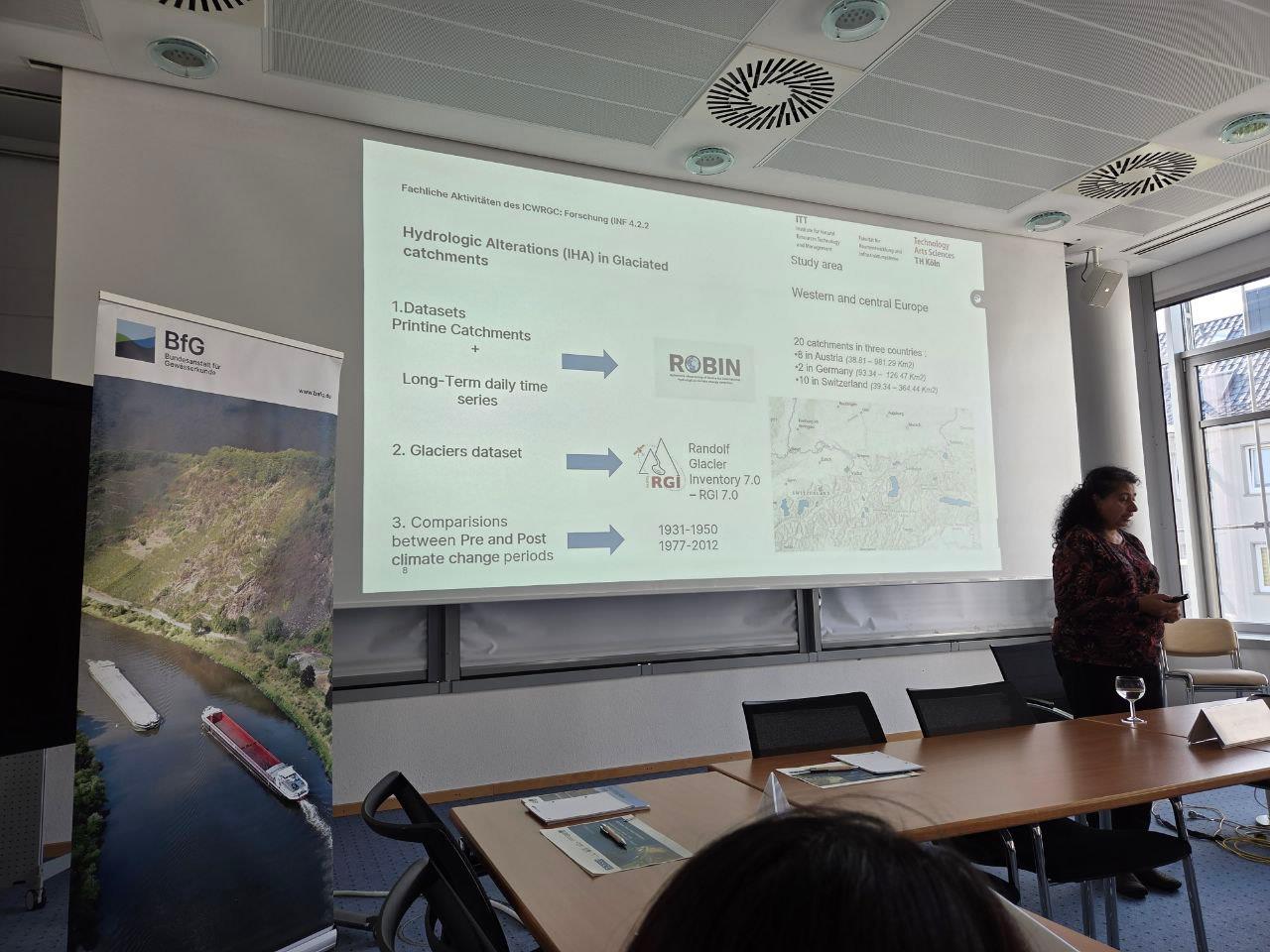
Fish pass on the Mosselum River.
As a result of the study tour, participants from Central Asia gained a deeper understanding of how science and policy interact in practice at transboundary water level. The tour also served as a platform for intercultural dialogue and strengthened cooperation, promoting the role of women in decision-making processes related to water diplomacy and sustainable development.